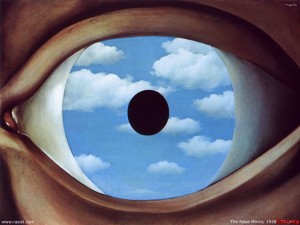Among the comments to the last post I published The music for an hearing impaired I found a very interesting one written by Zoe, which offers the opportunity to deepen one of the main topic of Noisyvision.
Let’s first read some part of the comment
“
I believe that when we talk about hearing impaired people and music, in fact we talk about different interpretations. As far as I know, and can understand music as an art form, not everyone can listen to a song in the same way, like not everyone can see a painting from the same point of view. And of course not in the same way. So, probably people don’t see and don’t listen to the same things anyway. “I don’t hear something well”, then becomes “I hear it differently”. That’s why I am convinced that music could meet ‘progress’, new forms, through hearing impaired composers. And that’s why I am not sure how much hearing impairment can affect someone’s ability to listen to music “well”. Of course you listen differently than I do, but I am not sure HOW differently. I would really love to manage to listen in the way you do, but I don’t know how and if I can (probably I can’t).
But I totally doubt about the ability to listen “well” or produce music.
… although we love music, we [not hearing impaired] can’t get the tune, we are not so close to it anyway, no matter the goose bumps and the feelings we get when we listen to it. No matter our efforts and our desire that we wish we played an instrument.
So then, don’t we talk about a ‘flair’ for music, rather than a hearing loss or ability?
“
Well, isn’t this related to what I wrote here?
“… in a sense not see and not to hear are disabilities only in relation to what most of people believe we should see or hear. But even in this case it is all very subjective. Not even the majority sees and feels the same way. “ Posted on March 21, 2011
In other words, no one receives the same stimuli in the same way, as long as they come to us through the senses, no matter which one.
The sensory experience is highly individual, especially if one refers to what Aristotle called the individual sense, the particular content that is felt by every sense, such as the color for an object.
Also according Aristotele, the common sensible is what we all feel the same way as the motion, shape, number, size, or terms relating to those characteristics that we find in all our feeling that, although different in its content, will always have a real object reference, as a figure or a number.
Perhaps most immediate is to identify the common sensible of sight. But what are the common qualities of hearing?
I think the tone could be an individual sense, the frequency a common. Or should we go to the level of meanings?
(But I’d like to explore the theme and get to know other opinions).
And what about touch? The vibration is common or individual? And the roughness? The hot, cold?
Perhaps the distinction is even more difficult and subtle if we talk about smell and taste.
However, it is clear: egveryone is the (individual or common?) sense he has.

